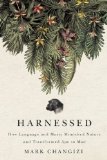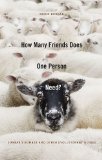These 21 books received the most clicks through my associates account at Amazon.com, which provides a pretty good approximation of a “best of 2010” list for books on the mind:
Anatomy of the Soul: Surprising Connections between Neuroscience and Spiritual Practices That Can Transform Your Life and Relationships – at amazon.com, kindle, amazon.co.uk
The Art of Choosing – at amazon.com, kindle, amazon.co.uk
Buddha’s Brain: The Practical Neuroscience of Happiness, Love, and Wisdom – at amazon.com, kindle, amazon.co.uk
The Character of Consciousness (Philosophy of Mind) – at amazon.com, kindle, amazon.co.uk
Choke: What the Secrets of the Brain Reveal About Getting It Right When You Have To – at amazon.com, kindle, amazon.co.uk
Drive: The Surprising Truth About What Motivates Us – at amazon.com, kindle, amazon.co.uk
Fascinate: Your 7 Triggers to Persuasion and Captivation – at amazon.com, kindle, amazon.co.uk
How Pleasure Works: The New Science of Why We Like What We Like – at amazon.com, kindle, amazon.co.uk
The Male Brain – at amazon.com, kindle, amazon.co.uk
The Master and His Emissary: The Divided Brain and the Making of the Western World – at amazon.com, kindle, amazon.co.uk
The Mind’s Eye – at amazon.com, kindle, amazon.co.uk
The New Science of the Mind: From Extended Mind to Embodied Phenomenology (Bradford Books) – at amazon.com, amazon.co.uk
Science and the Near-Death Experience: How Consciousness Survives Death – at amazon.com, kindle, amazon.co.uk
Self Comes to Mind: Constructing the Conscious Brain – at amazon.com, kindle, amazon.co.uk
The Shallows: What the Internet Is Doing to Our Brains – at amazon.com, kindle, amazon.co.uk
Stuff: Compulsive Hoarding and the Meaning of Things – at amazon.com, kindle, amazon.co.uk
The Watchman’s Rattle: Thinking Our Way Out of Extinction – at amazon.com, kindle, amazon.co.uk
Welcome to the Jungle: Everything You Ever Wanted to Know About Bipolar but Were Too Freaked Out to Ask – at amazon.com, kindle, amazon.co.uk
Where Good Ideas Come From: The Natural History of Innovation – at amazon.com, kindle, amazon.co.uk
Wisdom: From Philosophy to Neuroscience – at amazon.com, kindle, amazon.co.uk
The 14-Minute Marcel Proust: A Very Short Guide to the Greatest Novel Ever Written – at amazon.com, kindle, amazon.co.uk







